LGBTQ Talent and Institutional Success
By Charles R. Middleton, president emeritus of Roosevelt University, chair of the City Colleges of Chicago Board of Trustees and executive director of the LGBTQ Presidents in Higher Education.
June is Pride Month. All across the country, advocates for diversity and inclusion on our campuses are recognizing that the principles which underlie those fundamental goals of higher education are not only right, but they are also essential to help assure long-term success for all institutions.
And increasingly, though there remains much to be done, it is clear that we cannot achieve our maximum potential without taking full advantage of the considerable talent and commitment to our institutions that LGBTQ employees, students, alumni and community leaders bring.
At the dawn of the new millennium, to the best of our knowledge, there were only two openly LGBTQ presidents. Today, there are over 70—hardly a monumental shift but progress nonetheless. This is a reflection in part of the extraordinary transformation in the last decade and a half of the role that LGBTQ people play in society writ large and of the growing, but uneven acceptance of our presence in communities across the country. It also represents a generational shift where the young are far more likely to be inclusive than older folks. In short, our students are more progressive than others both on and off campus.
We LGBTQ presidents are to be found in a wide array of institutional types: in public and private, in community colleges and research universities, in for-profit and specialized institutions and in rural towns and the largest cities. We are distributed from Florida to Washington, from Maine to California, and across the vast Canadian countryside from Quebec Province to British Columbia.
Small wonder that several presidents joined me in developing our own organization, the LGBTQ Presidents in Higher Education, which is open automatically to any out president or chancellor who wishes to join. Through the organization, we communicate and provide advice and counsel on matters of leadership, professional enhancement and solving thorny problems of running our institutions. This year, we have become an affiliate member of ACE and will sponsor our second annual National LBGTQ Leadership Institute in New York City on June 24-25 (the first was held in Chicago last June and planning is underway for the third in Seattle next June).
Our goal as educators is to lead our campuses successfully through the uncharted waters of these challenging times and to focus on the success of our students as they prepare for engaged and fulfilling lives and careers to come. At our group’s meetings, these issues focus our deliberations on many topics, not least important among them our responsibility as presidents and chancellors to develop cadres of emerging leaders on our faculty and in the various administrative units on campus.
We take this responsibility very seriously. We each know from decades of personal experience that to be successful in tapping into the vast array of talent on our campuses, we need to be committed to the principle of total inclusively. Given the demographics of the country generally and of higher education itself, it increasingly will be a challenge to find sufficient numbers of talented and prepared people to take up the mantel of leadership at every level.
This is why it makes good institutional sense to spend time and effort to identify everyone—and I do mean everyone—who might help assure success in attaining the long-term educational goals of every institution.
It is also why we created this organization as a way to assure that our reach is national and international and includes all levels of campus work, not just the presidency. Perhaps most importantly, this organization will provide a mechanism for all people who share our goals, whatever their personal status, to participate in this work.
Please join us in this important effort to assure that all of our institutions take full advantage of leadership talent wherever it may be found and through that inclusiveness, help to promote our ongoing academic success well into the future.
